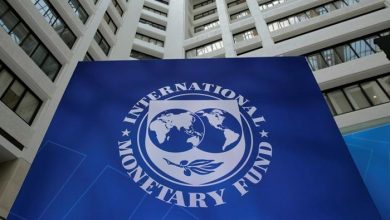Corporate Trustees reject gov’t Debt Exchange Programme

Government’s request that holders of domestic debt voluntarily swap around GH¢137billion of the domestic notes and bonds of the Republic under its Ghana Domestic Debt Exchange Programme has been rejected by the Chamber of Corporate Trustees.
According to government, the debt exchange programme is now required to rebalance the regime of current interest rates.
After carefully examining the programme, the Chamber stated in a statement that it is detrimental to the interests of contributors to pension schemes.
“The Pensions Chamber would like to assure contributors to pension schemes that the industry has not agreed to the debt exchange programme proposed by the Ministry of Finance.
“As Trustees, we hold a fiduciary responsibility and are enjoined to seek the best interest of contributors at all times. We encourage all contributors to pension schemes to seek further information from their pension providers/administrators as we engage further with government for an improvement to terms of the restructuring,” said Thomas Kwesi Esso, Executive Secretary of the Chamber.
“On 30th October 2022, President Nana Addo Dankwa Akufo-Addo addressed the nation and assured all Ghanaians that ‘there will be no haircuts on pension funds’. A few weeks after this announcement, we are all witnessing, rather surprisingly, a major U-turn from that position.”
The Chamber emphasises that although there is an urgent need to lower government’s debt load and restore macroeconomic stability – and although inflation has significantly hurt pension fund assets this year – it should not be done at the expense of pension schemes.
“We share in government’s call for burden-sharing, but that should be done in the spirit of fairness to ensure a win-win outcome for all stakeholders. The proposal as put forth by the Minister of Finance is inferior to market expectations and will destroy the savings of Ghanaians – further undermining market confidence. This is why we reject it outright.
“We indulge contributors to pension funds and actors in the pensions industry to remain calm as we seek the best outcome in our negotiations with the Ministry of Finance,” he said.
According to government, modalities under the arrangement seek to exchange existing domestic bonds as of December 1, 2022 for four new bonds maturing in 2027, 2029, 2032 and 2037. These new instruments will pay no interest in 2023, 5 percent interest in 2024 and subsequently 10 percent interest per annum until maturity. The predetermined allocation ratio are 17 percent for short-term bonds, 17 percent for intermediate bonds, 25 percent for medium-term bonds and 41 percent for long-term bonds.
This when completed will afford government some fiscal space to operate, as it envisages reducing, particularly, the domestic interest cost in 2023 which is estimated at GH¢31.29billion out of the total GH¢52.55billion.
Financial Stability
During a televised broadcast 10 days after the budget presentation – on the eve of domestic DEP’s formal launch – the finance minister provided preliminary details of its broad application.
To mitigate the plan’s sizeable impact on financial institutions – banks, pension funds, insurance companies, fund managers and collective investment schemes (CISs) – government announced the establishment of a Financial Stability Fund (FSF) in collaboration with development partners to provide liquidity support to ensure they are able to meet their obligations to clients.
Additionally, during the broadcast Mr. Ofori-Atta stated that his outfit is working with the financial sector’s various regulators to “put in place appropriate measures and safeguards to minimise the potential impact on the financial sector and ensure financial stability is preserved”.
Already, the Bank of Ghana (BoG) has expressed a willingness to support regulated entities, especially banks, which have a high level of exposure to Treasury securities to remain liquid and solvent.
Source: thebftonline









